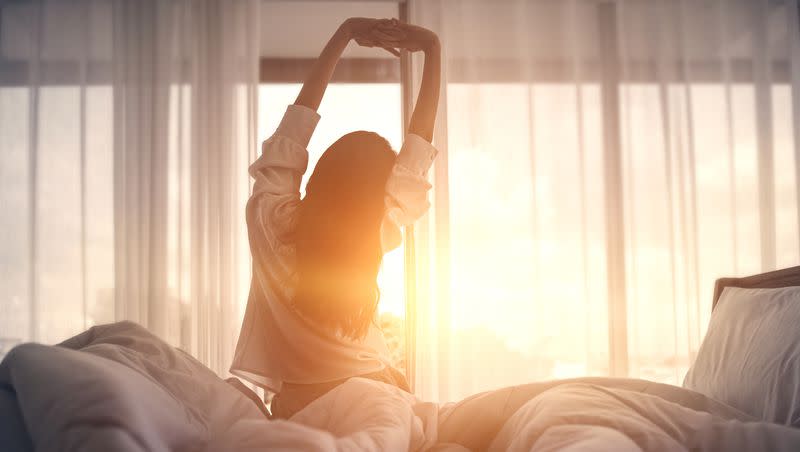Want to become a morning person? Here are 5 tips

There’s a common misconception that if you’re a morning person, you’re productive, and if you’re a night owl, you’re lazy. However, some studies show that other factors play a role in when we go to bed and wake up — one being genetics.
“Using data from 700,000 individuals, we’ve found 351 genetic factors that influence whether you prefer mornings or evenings,” Michael Weedon, senior author of a study published in Nature Communications, told CNN. “These factors affect what time people sleep and wake up.”
If you are a night owl striving to cross into early riser territory, don’t worry; your genes don’t have all the say. Here are some gradual lifestyle changes that can help you become a morning person.
Consistency is key
The average adult needs anywhere from 7-9 hours of sleep, according to the Centers for Disease Control and Prevention. Maintaining the same sleep clock throughout the whole week will allow your body to stay adjusted to its schedule, giving you better sleep at night and the feeling of being well-rested throughout the day.
A study from Chronobiology International found that sleeping in on weekends to “recover” from sleep loss during the week can actually interrupt our circadian rhythms, and it is, in fact, better to not sleep in on the weekends and keep a daily sleep schedule.
“If someone says, ‘I want to be more of a morning person during the week, but I want to sleep in on the weekends,’ that’s not going to work,” Philip Gehrman, a clinical psychologist, told Time.
Set morning and evening routines
If you repeat a similar routine every night before bed, your body will know and signal to the brain that it is almost time for sleep. “This type of behavioral cue is all the more powerful when you perform the same activities in the same order, night after night, before going to bed,” per Sleep Foundation.
And as tempting as it may be, avoid hitting the snooze button in the morning.
“Hitting the snooze button prolongs sleep inertia compared to using a single alarm,” Rise Science reported, citing a 2022 study from the Journal of Physiological Anthropology. “Sleep inertia is the groggy feeling you get right after waking up. It’s natural, but you’ll feel it a lot more when you’ve snoozed, making mornings harder than they need to be.”
Related
Natural light is your friend
The sun’s cycle is essential to our circadian rhythm.
“Our circadian clock has an internally driven 24-hour rhythm that tends to run longer than 24 hours but resets every day by the sun’s light/dark cycle,” per CDC, which noted that our circadian clock regulates a number of rhythms in our body, including:
Hormonal activity.
Sleep/wake cycles.
Eating and digesting.
Body temperature.
According to a study from The National Institute for Occupational Safety and Health, exposing our bodies to natural sunlight in the morning actually helps our bodies fall asleep more quickly at night.
“Light affects the production of hormones like melatonin and cortisol that are involved in wakefulness and sleepiness,” per The Wall Street Journal. Fariha Abbasi-Feinberg, medical director of sleep medicine at Millennium Physician Group in Fort Myers, Florida, added that morning sunlight contains light frequencies that “impact your level of alertness during the day and set you up for quality sleep the next night.”
Avoid caffeine later in the day
Consuming caffeine later in the day can interfere with your ability to fall asleep, making it just as hard, if not harder, to wake up early in the morning.
A study published in the Journal of Clinical Sleep Medicine found that about 90% of individuals in the study consumed caffeine in the afternoon and that 68.5% had caffeine in the evening.
The study concluded that “the magnitude of reduction in total sleep time suggests that caffeine taken six hours before bedtime has important disruptive effects on sleep and provides empirical support for sleep hygiene recommendations to refrain from substantial caffeine use for a minimum of six hours prior to bedtime.”
Limit screen time
Our brains produce melatonin in response to darkness. Blue light from screens can interfere with melatonin production, making it harder to fall asleep.
The Sleep Foundation recommends turning off all electronics 30 minutes before bedtime. “Electronic devices emit bright blue light that your brain perceives as sunlight, tricking it into delaying sleep and keeping you awake longer than you’d like.”
